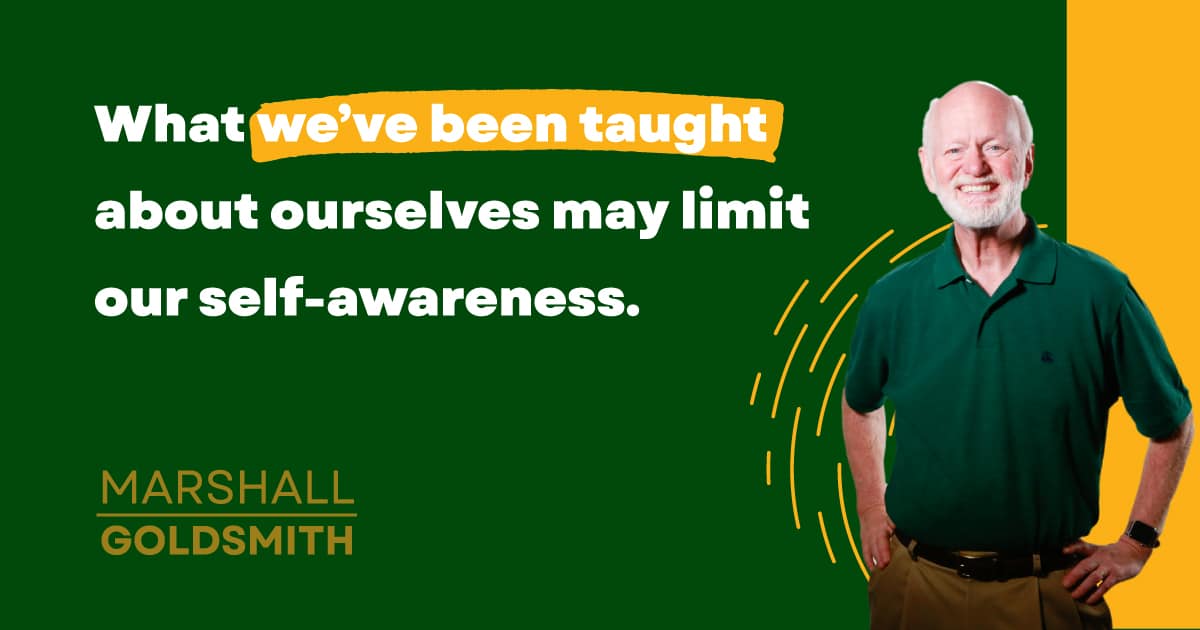Playing Favorites By Marshall Goldsmith There’s a reason I devote...
For several years, I’ve performed what some might consider an unusual daily ritual.
At a pre-arranged time, I get a phone call from a person who I have hired solely for the purpose of listening to me report my scores on a brief self-test. The questions, which I wrote myself, function as a simple checklist of my main priorities. For instance, have I done my best to exercise, set goals, have positive interactions with others, etc. My caller listens politely, records my scores, and then we hang up.
What’s the purpose of this self-rating? This process, which I call the “daily questions,” keeps me focused on becoming a happier, healthier person. It provides the discipline I sorely need in my chaotic working life as an executive coach, teacher and speaker, which involves traveling 180 days out of the year to countries all over the globe. And, it helps me get better at almost everything!
At the seminars I teach, I encourage students to try this for themselves by writing their own questions. Most of them are eager to participate. When I encounter a skeptic, he or she usually asks why I need to pay another person to remind me of such simple things – the list even includes whether I flossed my teeth. Shouldn’t I, a fully functional adult, remember to do that on my own?
Of course I should, and so should we all, but simple, daily behaviors are among the hardest things about our lives to control or change. Taken together, they can make the difference between a life well lived and a life gone hopelessly off course.
Perhaps because our culture lionizes willpower and independence, most of us believe that we aren’t supposed to need help with these fundamentals. Instead, we tend to believe help is warranted only for difficult, complex problems. From this perspective, the daily questions seem pointless at best. Why take a test for which I wrote the questions and to which I already know the answers? Not only that, I merely ask whether I’ve done my best to do achieve my goals – that’s a pretty soft standard. The only scale of success is, “Did I try?”
It sounds too easy. But after years of dedication to this process, I now hold the counterintuitive belief that the daily questions are in fact a very tough test, one of the hardest we’ll ever take.
At the moment, I have 29 daily questions. There is no correct number. It’s a personal choice, a function of how many issues you want to work on. Some of my clients have only three or four questions.
The first 13 of my questions ask whether I did my best to address a particular behavioral change or interpersonal challenge. For example, did I do my best to avoid angry or destructive comments? Did I do my best to find meaning in my work? The remaining 16 cover professional and personal self-discipline issues like how much sleep I got, how many minutes I devoted to writing, and whether I am up-to-date on my doctor appointments.
The daily work of behavioral change, which can do so much to re-orient our lives for the better, might seem overwhelming. The people we know we can be, the people we once dreamed of becoming, can recede ever farther as we try to stay afloat in our daily routines. We feel dissatisfied, and dissatisfaction slides easily into bitterness. Once the chance to make a change has passed, our bitterness solidifies into regret.
Think of the daily questions as a pragmatic antidote to those darker emotions. Put your goals on paper, or an excel spreadsheet. Measure every day, “Did I do my best to…?” Your problems won’t disappear, but you will exist in a different relation to them and you will improve. You are now the agent of change and prepared to get better at anything!
Triggers is a #1 New York Times and Wall Street Journal best-seller! Order it at Amazon. See The Marshall Goldsmith Thinkers50 Video Blog for more of this video series.

Adding Too Much Value Won’t Get You There By Marshall...
C-Suite Master Class: No, But, However By Marshall Goldsmith Continuing...
The Doerr Institute: Expanding the Market for Coaches By Marshall...
Making Leadership Development Part of the College Degree at Rice...
Sanyin Siang – Winner of the Thinkers50 Marshall Goldsmith Coaching...
Thinkers50 Marshall Goldsmith Distinguished Achievement Award in Coaching – Nominees...
Leading with Influence: What Is Influence360°? By Marshall Goldsmith Founder...
Are You a Dominator, Manipulator, Persuader or Influencer? By Marshall...
Leading with Influence: Redefining Modern Influence Part 2 By Marshall...
My mission is simple. I want to help successful people achieve positive, lasting change and behavior; for themselves, their people, and their teams. I want to help you make your life a little better. With four decades of experience helping top CEOs and executives overcome limiting beliefs and behaviors to achieve greater success, I don’t do this for fame and accolades. I do this because I love helping people!
As an executive educator and coach, I help people understand how our beliefs and the environments we operate in can trigger negative behaviors. Through simple and practical advice, I help people achieve and sustain positive behavioral change.